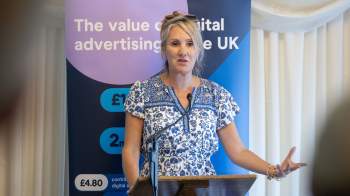IAB UK statement on HFSS online advertising restrictions
IAB UK statement on HFSS online advertising restrictions - IAB UK
A version of this statement has been sent to the Prime Minister and the Department for Digital, Culture, Media and Sport
Ahead of the Government's expected announcement regarding online advertising of High Fat Sugar and Salt foods (HFSS) - and with speculation of an outright ban on HFSS online ads circulating - IAB UK’s stance is that such an untargeted intervention disregards the prevailing causal evidence relating to obesity, bluntly overlooks digital advertising’s capabilities as an addressable medium and will disproportionately impact our world-leading digital ad industry at a crucial time of tentative economic recovery.
Banning all HFSS advertising online is a draconian and unexpected measure, which the Government has provided no evidence to support and that would put such ads on a par with cigarette advertising, which is banned (in all media). Reducing obesity within the UK is an important priority, yet all the evidence we have suggests that online advertising has a negligible impact on obesity rates, with factors such as education and portion control understood to be significantly more effective in addressing the issue. The Government’s own 2017 impact assessment showed that an online ‘watershed’ would reduce children’s calorie intake by a negligible 0.3 calories per day, and that the evidence of the impact of advertising on adults’ calorie consumption was at best ‘inconclusive’.
While the suggested 9pm watershed for TV ads implies that the Government’s main priority still remains reducing the number of HFSS ads that children see, an outright ban of HFSS ads online creates an unlevel playing field that disproportionately and unjustifiably penalises digital media and creates perverse and contradictory outcomes; particularly given that the Government’s own impact assessment shows that digital ad spend on food and drink advertising is much lower than on TV and outdoor and that children’s exposure to HFSS ads online is already low. According to the Advertising Association, under 16s see less than 0.5 seconds of HFSS ads per day per child.
A potential online ban also rides roughshod over digital advertising’s unique capabilities to target and exclude specific audiences, which are currently used to ensure that children’s exposure to HFSS ads is minimal, as required under existing advertising rules. What’s more, at a time when UK advertising spend has been hugely damaged by the pandemic, an outright ban of HFSS ads online will impact all ad-funded online content, including quality news publishers that are already navigating well-documented challenges.
Finally, any proposal as drastic as an outright ban deserves and requires the consultation of the industry in question - both to evaluate all of the existing evidence and provide an informed, balanced assessment. Our view is that a ban on online HFSS ads will have untold negative consequences without making any meaningful contribution to the Government’s aim of reducing obesity.
Related content
CAP issues updated LHF guidance for consultation
Learn moreGovernment confirms brand ads exemption in LHF ad ban
Learn moreLHF ad ban guidance for TV+ platforms
Learn moreTrade bodies launch resources to help industry prepare for LHF ad ban
Learn more
Fast forward to 2030 with Futurescape
An in-depth exploration of the attitudes, innovations and media shifts that will shape the years ahead and redefine how we advertise by the turn of the decade



